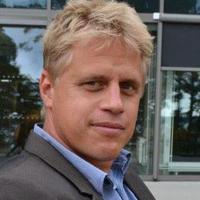
ChEss Machines For ElectriFiEd Construction SiTes (EFFECT)
Objective
The EFFECT project aims to develop a digital twin of electrified construction site resources, processes, and their dependencies to evaluate the potential cost (efficiency) and benefit (emission reductions) of best-practice electrification of a construction site. Partners KTH, ABConnect, and Gordian, along with the City of Stockholm and 3rd parties PEAB and Northvolt, will use the digital twin to evaluate a construction site and, in a planned continuation project, optimize the steps of electrified construction operations using AI methods similar to those used in chess machines. The digital twin and its application will be developed and tested within the Kvarter Persika living lab, an urban renewal project of 1200 apartments in Södermalm, Stockholm.
Background
By 2050, the number of people living in cities will increase by 60% to 6.5 billion. City construction today is responsible for 23% of the global carbon emissions. Electrification is the de-facto technology for decarbonising our society, including city construction. However, due to the variability, non-linearity, and relatively long duration of new processes linked to electrification, we need more knowledge about the potential benefits and costs of electrified constructions and smart methods for planning and optimizing electrified construction operations.
Crossdisciplinary collaboration
In the EFFECT project, academia, research-based startups, the city and large industrial partners from the construction and energy industries will combine academic disciplines of control theory, simulation, optimization, AI/ML, and network communications to make future city construction more sustainable.
Contacts

Gyözö Gidofalvi
Associate Professor at KTH, PI: ChEss Machines For ElectriFiEd Construction SiTes (EFFECT), Co-PI: GEO-based Multi-layer Environmental Modelling of Urban TraffIC (GEOMETRIC), Co-PI: Learning in Routing Games for Sustainable Electromobility, Digital Futures Faculty
+46 8 790 70 21gyozo@kth.se

Jonas Mårtensson
Associate Professor, Division of Decision and Control Systems at KTH, Vice Chair Working group Smart Society, Co-PI: ChEss Machines For ElectriFiEd Construction SiTes (EFFECT), Co-PI: GEO-based Multi-layer Environmental Modelling of Urban TRaffIC (GEOMETRIC), Co-PI: Investigating Sidewalks’ Mobility and Improving it with Robots (ISMIR), Digital Futures Faculty
+46 70 190 97 98jonas1@kth.se


